- Home
- Leslie North
Redeeming the Rancher Page 3
Redeeming the Rancher Read online
Page 3
He knocked on the ajar door.
Mary Beth Peal poked her head around the wall separating a recreation of the Best Little Whorehouse from the Best Little Bathroom. She wore a gray maid’s uniform and a judgmental frown. Mary Beth was his mother’s best friend. Wes’s early morning motel crawl was sure to get back to his momma.
“If you’re looking for the pretty brunette, she went to the motel office.”
“Nice to see you, Miss Peal.”
“Starlite used to be a respectable establishment. Leastwise in daylight.”
If you could call a place that glorified the fiery end of Rhett and Scarlett respectable. Her insinuation was clear: get your backside on home before gossip twists your being here like two tin cans connected by a string. She was right, of course. Already, the ranch’s morning chores were a distant memory—a reality he would have to set to rights for days to make up to Nat—but Wes was nothing if not an opportunist. The way out of Amsterdam spending the next half-year in his barn had just presented itself, and he couldn’t let it ride. A half-year-long reminder of the parts of his life he was trying hard to balance back out was a half-year too long.
Wes entered the motel office, little more than an old desk and a display crowded with fliers advertising family fun hundreds of miles from Close Call. Conversation in the tight space died. Two sets of eyes—one belonging to Harvey Drummond, second-generation motel proprietor, the other belonging to the same genetic pool as his buddy and capable of snatching away Wes’s thoughts and manners and oxygen—stared a hole through him.
“Help you, son?” said Harvey.
Amsterdam’s eyelids squeezed tighter.
Wes snatched off his hat and sat in a tangerine-colored armchair that had probably been fashionable when Nixon was having his own hotel issues. “I’ll wait.”
The two returned their focus to a wall of photographs.
“So, the one next to my grandfather was Gully.” Harvey pointed to a framed black and white. “Gulverson, really, but they all called him Gully; H Company, second platoon, first gunner. Granddad didn’t know why Gully made such a top-notch nose gunner until one sunny spring morning in a German ditch.”
The military jargon snagged Wes’s attention, but not so much as the brunette, whose presence pushed back the walls until they didn’t press in so tight, who stood in her baggy overalls and rust-colored scarf and shrink-wrapped shirt, eyes enraptured, fingertips resting against her lips as if a gasp was next on her thought horizon. Harvey’s last name—Drummond—slogged through the whiskey refuse in Wes’s memory until he recalled why it was familiar: Russell Drummond, Harvey’s father and First Sergeant of H Company in the United States Army during the Second World War, was the first recorded enlistment from Close Call who died in the line of duty. Everything Harvey knew of his father came from now-yellowed letters home from the Allied Front. Wes squirmed against the chair, tried not to listen.
“Only had their side arms on them, their machine guns having been mounted to the Jeeps nearby. They were talking about what they always talked about—dreams waiting for them at home, beaches that didn’t hold the possibility of death. They teased each other about their newly shorn hair they had prepped the previous night because they anticipated head wounds and shaving made it easier to triage. You can see Gully had a mane of hair that would put a stallion to shame, but apparently a damned ugly head. Anyways, they was talking, and Gully broke the conversation and nudged my dad. Pointed out a pillbox across the field…”
Amsterdam’s brow twisted. “Pillbox?”
Wes knew the term but wasn’t supposed to be listening. Except that he was—drawn into the story because that life was so much a part of him.
“Pillboxes were defensive structures made out of concrete, rocks, hillsides, whatever the landscape offered. They carved out holes for the gun barrels to rest on,” explained Harvey. “Looked like an old pillbox.”
“I’ve seen those. Some of them are still around,” said Amsterdam, her voice reverent and wide and gathered enough to sound scholarly but leave space for imagination and wonder. “There’s a French photographer who roams the countryside, capturing the war’s relics in haunting black and white photography.”
She was immersed, all-in with her emotions in a story that, to most, would have been a footnote, ancient history. The woman studied the squadron photograph as if it were an artifact, recently unearthed, and she an archaeologist set on bringing it to life.
Harvey picked up the story. “Gully was insistent that the pillbox was there despite my grandfather’s protest that his new buddy was seeing nothing but morning forest shadows and a trick of the eyes from their lack of sleep. Turns out, Gully was colorblind. His eyes weren’t tricked by the camouflage the Germans used to conceal the structure. When the shots rang out that next minute, my grandfather knew immediately which direction the enemy fire had come from. Saved his life that day.”
“And Gully?” Amsterdam’s voice had retreated.
Self-preservation. Wes knew those notes well. He squirmed again.
Harvey shook his head. “Never made it to sunset.”
She lowered herself to perch on the desk’s corner, lips slackened, glasses slipped along her downturned nose, as if she herself had known Gully. In the fertile mind of an artist, he supposed she did. Wes imagined her at news of Daniel. If she carried this emotion for a man in an old photograph, Daniel’s loss would have eviscerated her.
Amsterdam glanced at Wes. The sight of her glistening eyes damned near eviscerated him.
This one is trouble. She feels too much—things you don’t want to feel at all.
She blinked away the moisture, inhaled deep enough for her chest to rise, and embraced Harvey. “I’m sorry for your loss.”
Harvey froze, arms at his sides, clearly not accustomed to a subtly-beautiful woman throwing herself around his neck. Wes would have laughed had the moment not been so exposed. The man tapped his hands at her back a few times then sank deeper into the embrace. God Almighty, but Wes’s throat tightened. Harvey’s wife had died of cancer ten years ago, probably the last time anyone had listened to him with such intent, embraced him with such warmth.
For all the ceremony that Amsterdam had put into the tale, she left none for the aftermath. She shoved her hands in her enormous pockets and made a beeline out of the office.
Harvey glanced at Wes, his arms now embracing a phantom, his eyes all what-the-hell-just-happened?
Wes shrugged and followed. He settled his hat low across his brow to block the assaulting sunlight and double-timed his pace to catch up with her—no small task given the spinning of the planet and the vertigo in his head.
“Wait,” he said.
She stopped and turned. Nearly toppled him to keep from running square into her. Her fingertips bumped her eyeglasses higher on her nose. Her parted lips, her searching eyes that haunted him, were as expectant as the one thing he could remember about the night before—her in her raincoat outside the bar, waiting for him to acknowledge her, to say something, to pull her closer. Just as he had the previous night, Wes lost all words.
“Yes?” she said, her tone hanging on expectant, slightly irritated.
He ran through what he wanted to say in his mind: Why didn’t you tell me who you were? How could I not refuse anything that reminded me of how I screwed up over there? Why do you toss me so far off myself simply being near you when Daniel was so easy, like a fourth brother? Why are you the only thing I remember from last night? In the end, it all seemed jumbled and sharp. He went with what was now obvious.
“You’re Daniel’s sister.”
“Half sister,” she corrected. Instead of the truth, his awareness snagged on the open-mouthed ah of her vowel, very nearly British yet not, very nearly an accent he could listen to indefinitely.
“Why didn’t you tell me?”
“Between Clyde Hammond’s extra toe and pluots, there was hardly time.”
Wes didn’t want to smile. He did anyway.
“I had to see this place for myself. Close Call made it into nearly every letter he wrote.” She rearranged gravel underfoot, the bare feet in her Jesus sandals so plain, so refreshing compared to the Southern girls who focused, first and foremost, on appearances. “Daniel adored you.”
Wes’s lungs tightened. He breathed through it, tried to brush the discomfort aside, but it lingered. The idea of her being at the ranch gathered in his mind. This time, as much as he fought the notion, extending the invitation eased the ache, felt right. When his voice came, it was strung out.
“Get your things. You’re coming with me.” Wes cleared his throat. “Daniel would give me shit if I let you stay here.”
Her face brightened on a smile. “Stayed at the Starlite Motor Lodge, did he?”
Wes matched her grin. He adored the soft lines at the edge of her lips when she let loose. “A time or two.”
“And here I was starting to think the only inspiration for my bronze would be a Burt Reynolds moustache.”
He caught himself in mid-delight at her humor. Surprised she had any, really. Another thing, he supposed, she shared with Daniel—though hers was more concealed than his. So long as her inspiration didn’t involve him, as the mayor had suggested, the time would be tolerable. He just hoped her little display with Harvey was an anomaly. Now that Wes was finally home for good, he was all about regaining peace, finding his balance, leaving his service time behind him. He wouldn’t allow her to bring intensity and mourning and bronze reminders on Main Street back to his Close Call.
Not even for Daniel.
4
At sixty-five miles an hour, the breeze through the cracked windows of Wes’s truck held a chill. With a month and a half left in the year, Texas felt closer to the sun than New York. The light shone everywhere but on Livie’s mood. She tended to carry things like Gully for days if she allowed herself to. The occupational hazard of feeling too much.
The drive was awkward, vacant of conversation, the only voice a low-volume, string-heavy country song plodding from the radio speakers. Livie pulled her sketchbook from her leather satchel and committed Gully to the page before he was lost. She got as far as the shape of his face, his dreamy hair, when Wes’s tenor singing voice rumbled across the truck’s bench seat and tickled her ribcage.
“If you ain’t into that, we don’t give a dammmn.”
Livie stared at the page and tried not to take the bait, quite possibly her most formidable task since arriving in Close Call.
“It’s required down here,” he said. “You have to sing that line.”
She wondered if Daniel ever sat in this truck beside Wes, ever sang that song. “I’ll keep that in mind next time I’m in redneck Hell.”
He gave an appreciative laugh that proved too tempting not to look up. In the evening’s shadows, her mind had zeroed in on his human form, and he had fascinated. But now, in the morning light, only a few minutes past a photographer’s prime dawn window to capture light and shadow and essence, what she could see of him—his powerful forearms beneath the dusty denim sleeve; the sleepy, sexy blink of his eyelids; his impossibly long and dark lashes to match a striking spray of brows and morning growth on his jaw—all of him was breathtaking. Had she a camera with black and white film, she would have insisted he allow her to take his picture.
“I can’t keep calling you Amsterdam in my head. Daniel mentioned you, but I can’t remember your name.”
“You call me Amsterdam in your head?”
He blinked slowly and suppressed a grin as if they were keeping track of gotchas and she had pulled ahead in the tally. His draped wrist was the only thing in command of the steering wheel. She found that confidence fascinating. And mildly alarming.
“Olive. Most people call me Livie.”
Right. Wes remembered now. Daniel had called her Livie.
“I like Olive.”
A declaration of intent more than anything. Few had ever called her by her given name.
The breeze lifted her sketch page over and over. She tired of pinning it. For the first time since she had met him, talking seemed easier than art.
“When I was born, my mom’s favorite painting was a Matisse. Promenade Among the Olive Trees. Matisse painted it in Collioure, in the south of France, the same place she met my father and fell in love.”
“A nice story.”
He was being polite. Placating. But that wasn’t where inspiration lived. Long ago, Livie learned the best way to see people was to shift their fulcrum, tip the scales between who they presented to the world and who they were when no one watched. Nothing did that quite like a confession.
“On the surface, I suppose. But the painting is a bit like an experiment gone wrong. Childish, unnatural colors, little resemblance to what Matisse had done before. Not unlike my parents’ marriage. I spent most of their time together trying to keep the peace between them.”
As with all things art-related, she caught herself sprinting ahead, mind and speech.
“That’s a lot to put onto one name.”
“Happiness is a fleeting state, anyway. By nature, it cannot last.”
His expression twisted as if her philosophy had been a sour drop to the tongue. “How do you figure?”
“It’s like contrast in a painting. Light exists because the darkness permits it. Light is always the absence of something.” A kilometer or so of distance slipped past them before she attempted to nudge his fulcrum again. “Take you, your truck, for instance. I see no evidence that you’re military. Ten years of your life, yet it’s curiously absent. All but the length of your hair, which suggests a recent deployment.”
Wes took command of the wheel with both hands as if the sleepy stretch of highway had suddenly become treacherous.
“So, which is being a Marine? The dark or the light?” she asked.
“That topic is off limits.”
“Fair enough. What about the woman you were with last night?”
“Jealous?”
Livie stared out her window, an abrupt shift in boldness. Inside the warmth of her clothes, her nipples awakened, triggering hot blooms at her cheeks. This time, the gotcha was all his.
“You really do lead with your emotions,” he said.
“That a problem?”
“If you don’t want to get hurt.”
He edged his gaze from the road, a sideways glance, no doubt to gauge her response.
“Then don’t hurt me.”
Wes studied her, longer than was prudent for someone in control of a two-ton automobile barreling down the road. His expression was unreadable. She didn’t know if he wanted to scoop her flyaway hair back from her face or shove her out of the moving vehicle.
Livie retreated to her sketch, made a few strokes sharpening Gully’s features, but the lines favored the profile of someone much closer to her than a seventy-five-year-old photograph.
Wes kept time to the music with two bobs of his head and joined in the lyrics. “If you ain’t into that….” He pointed to her.
She busted out the worst exaggerated drawl in history. “We don’t give a dammmmn.”
He barked out an appreciative laugh and tapped his fingertips against the dash.
“Awful, isn’t it?” she asked.
“I barely have the heart to tell you it sounded like a Russian trying to sound like a Brit trying to sound like something between Cajun French and Deliverance.”
“You’re the one with an accent here.”
The sounds of the road polished away their shared humor. He surprised her when he spoke again.
“Her name is Bess Scandy,” he said. “Loneliest woman in town. Fell in love young, but he died on some oil rig out in the Gulf. She fills the emptiness with what she can.”
“With you?” She found it easier to challenge him with her hand in motion, sketching truth on the page.
“Is this the way it’s going to be? Between us?”
“Honest?”
“Intrusive.”
<
br /> “You find honesty intrusive?”
“No.” His tone held none of the pretense of their earlier conversation. If anything, he sounded surprised. “I find it refreshing. People are in the habit of telling service members what they think we want to hear. To protect us. Keep our minds off the bullshit long enough to stay alive.”
“Then we’ll always be honest with each other.”
Her pulse raced ahead, from forged connections, from the possibility of not being so alone, from the progress she had made in opening him up on the drive.
“No. Bess and I have never…”
“Not even in the suite belonging to the King of Rock and Roll?”
Livie meant it as a joke, not to pry. But honesty, it seemed, could be a scary thing on the return trip.
“Guess I was thinking about someone else.”
She had pushed too far, too fast. Part of her wanted to start their journey again, rewind the conversation from the moment they had retrieved his truck at the bar and he insisted on opening the passenger door for her. A quaint gesture, to be sure. One that left a pleasing warmth in her belly. The other part of her wanted to get where they were going so she could put distance between them.
Livie had never been inside a truck before. She couldn’t recall ever driving with the windows down, hadn’t listened to country music for any real length of time, and certainly couldn’t have anticipated the satisfaction of singing the word damn wildly out of tune and at the top of her lungs. But among the firsts on her journey to the Meier ranch was a subtle but powerful movement inside her chest that stirred her to fanciful thoughts. She had never been so swiftly taken by anything that was not art. She couldn’t say if she should embrace it or fear it.

 Elkin Brothers Christmas: The Complete Series
Elkin Brothers Christmas: The Complete Series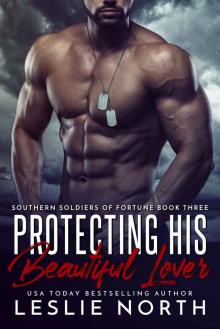 Protecting His Beautiful Lover (Southern Soldiers of Fortune Book 3)
Protecting His Beautiful Lover (Southern Soldiers of Fortune Book 3)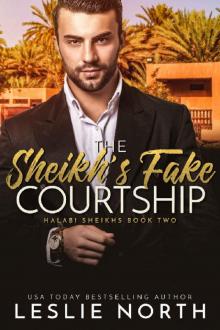 The Sheikh's Fake Courtship (Halabi Sheikhs Book 2)
The Sheikh's Fake Courtship (Halabi Sheikhs Book 2) The Billionaire King’s Heir (European Billionaire Beaus Book 3)
The Billionaire King’s Heir (European Billionaire Beaus Book 3) The Cowboy’s Pregnant Sweetheart (McCall Ranch Brothers Book 3)
The Cowboy’s Pregnant Sweetheart (McCall Ranch Brothers Book 3) SEAL’s Accidental Family: SEAL & Veteran Series: Book Two
SEAL’s Accidental Family: SEAL & Veteran Series: Book Two The Sheikh’s Convenient Bride (Omirabad Sheikhs Book 1)
The Sheikh’s Convenient Bride (Omirabad Sheikhs Book 1) Guarding the Single Mother (SEAL Endgame Book 1)
Guarding the Single Mother (SEAL Endgame Book 1) The Billionaire Prince’s Daughter (European Billionaire Beaus Book 2)
The Billionaire Prince’s Daughter (European Billionaire Beaus Book 2) The Sheikh’s Blackmailed Bride (Sheikhs of Al-Dashalid Book 2)
The Sheikh’s Blackmailed Bride (Sheikhs of Al-Dashalid Book 2) The Sheikh’s Fake Engagement (The Blooming Desert Series Book 1)
The Sheikh’s Fake Engagement (The Blooming Desert Series Book 1) Beckett Brothers: The Complete Series
Beckett Brothers: The Complete Series The Sheikh's Untameable Lover (The Tazeem Twins Series Book 4)
The Sheikh's Untameable Lover (The Tazeem Twins Series Book 4) The Billionaire’s Second Chance Christmas (Christmas with the Denton Billionaires Book 3)
The Billionaire’s Second Chance Christmas (Christmas with the Denton Billionaires Book 3)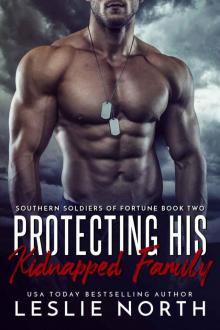 Protecting His Kidnapped Family (Southern Soldiers of Fortune Book 2)
Protecting His Kidnapped Family (Southern Soldiers of Fortune Book 2) The Billionaire’s Pretend Girlfriend (The Billionaires Club Book 2)
The Billionaire’s Pretend Girlfriend (The Billionaires Club Book 2) Sheikhs of Hamari: The Complete Series
Sheikhs of Hamari: The Complete Series The Sheikh’s Pregnant Lover (Sheikhs of Al-Dashalid Book 1)
The Sheikh’s Pregnant Lover (Sheikhs of Al-Dashalid Book 1)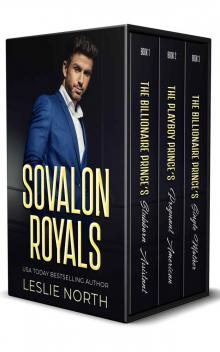 Sovalon Royals: The Complete Series
Sovalon Royals: The Complete Series Hasan Sheikhs: The Complete Series
Hasan Sheikhs: The Complete Series The Billionaire’s Secret Son (Preston Brothers Book 2)
The Billionaire’s Secret Son (Preston Brothers Book 2) The Sheik's Reluctant Hostage (The Quabeca Sheiks Series Book 2)
The Sheik's Reluctant Hostage (The Quabeca Sheiks Series Book 2) The Billionaires Club- The Complete Series
The Billionaires Club- The Complete Series The Sheikh’s Pregnant Love: The Karawi Sheikhs Series Book Three
The Sheikh’s Pregnant Love: The Karawi Sheikhs Series Book Three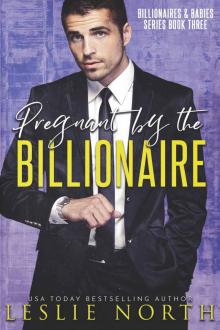 Pregnant by the Billionaire (Billionaires & Babies Book 3)
Pregnant by the Billionaire (Billionaires & Babies Book 3) The Sheikh's Surprise Twins (Qadir Sheikhs Book 1)
The Sheikh's Surprise Twins (Qadir Sheikhs Book 1) The Billionaire’s Sudden Christmas Baby (Christmas With the Denton Billionaires Book 2)
The Billionaire’s Sudden Christmas Baby (Christmas With the Denton Billionaires Book 2) Cowboy's Unexpected Family (Thorne Ranch Brothers Book 1)
Cowboy's Unexpected Family (Thorne Ranch Brothers Book 1) Guarding His Unexpected Twins (SEAL Endgame Book 3)
Guarding His Unexpected Twins (SEAL Endgame Book 3) SEAL & Veteran Series: The Complete Series
SEAL & Veteran Series: The Complete Series The Sheikh's Marriage Bargain (Hasan Sheikhs Book 1)
The Sheikh's Marriage Bargain (Hasan Sheikhs Book 1)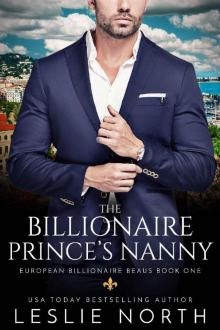 The Billionaire Prince’s Nanny (European Billionaire Beaus Book 1)
The Billionaire Prince’s Nanny (European Billionaire Beaus Book 1) The Billionaire’s Accidental Baby: Billionaires & Babies Book One
The Billionaire’s Accidental Baby: Billionaires & Babies Book One The SEAL’s Pregnant Ex (The Admiral’s SEALs Book 3)
The SEAL’s Pregnant Ex (The Admiral’s SEALs Book 3)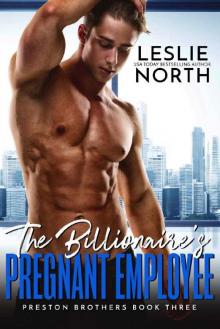 The Billionaire’s Pregnant Employee (Preston Brothers Book 3)
The Billionaire’s Pregnant Employee (Preston Brothers Book 3)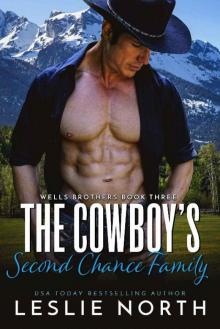 The Cowboy’s Second Chance Family (Wells Brothers Book 3)
The Cowboy’s Second Chance Family (Wells Brothers Book 3) The Sheikh’s Rescued Baby (Hasan Sheikhs Book 3)
The Sheikh’s Rescued Baby (Hasan Sheikhs Book 3)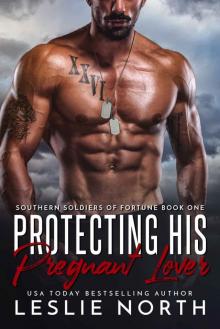 Protecting His Pregnant Lover (Southern Soldiers of Fortune Book 1)
Protecting His Pregnant Lover (Southern Soldiers of Fortune Book 1) The Sheikh’s Secret Child: The Karawi Sheikhs Series Book Two
The Sheikh’s Secret Child: The Karawi Sheikhs Series Book Two The Sheikh’s Pregnant Foreigner
The Sheikh’s Pregnant Foreigner Sheikhs of Al-Dashalid: The Complete Series
Sheikhs of Al-Dashalid: The Complete Series The Sheikh’s Wife Arrangement: The Safar Sheikhs Series Book One
The Sheikh’s Wife Arrangement: The Safar Sheikhs Series Book One The SEAL’s Instant Family
The SEAL’s Instant Family The Sheikh’s Pregnant Wife (Hasan Sheikhs Book 2)
The Sheikh’s Pregnant Wife (Hasan Sheikhs Book 2)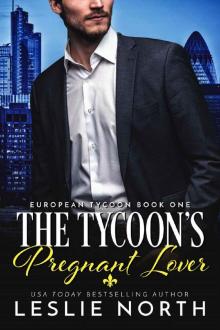 The Tycoon’s Pregnant Lover (European Tycoon Book 1)
The Tycoon’s Pregnant Lover (European Tycoon Book 1) The Russian's Stubborn Lover (The Fedosov Family Series Book 1)
The Russian's Stubborn Lover (The Fedosov Family Series Book 1) Grant Brothers Series: The Complete Series
Grant Brothers Series: The Complete Series The Billionaire Chef’s Baby (McClellan Billionaires Book 2)
The Billionaire Chef’s Baby (McClellan Billionaires Book 2) The Sheikh's Captive American (Zahkim Sheikhs Series Book 1)
The Sheikh's Captive American (Zahkim Sheikhs Series Book 1) The Sheikh King's Ward (Halabi Sheikhs Book 1)
The Sheikh King's Ward (Halabi Sheikhs Book 1) The Sheikh's Christmas Baby
The Sheikh's Christmas Baby The Sheikh's Amulet (Sheikh's Wedding Bet Series Book 3)
The Sheikh's Amulet (Sheikh's Wedding Bet Series Book 3) The Sheikh’s Accidental Heir (Sharjah Sheikhs Book 2)
The Sheikh’s Accidental Heir (Sharjah Sheikhs Book 2) The Sheikh's Pregnant Employee
The Sheikh's Pregnant Employee Safe and Sound (The Safe House Series Book 3)
Safe and Sound (The Safe House Series Book 3)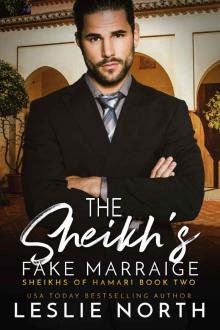 The Sheikh’s Fake Marriage (Sheikhs of Hamari Book 2)
The Sheikh’s Fake Marriage (Sheikhs of Hamari Book 2)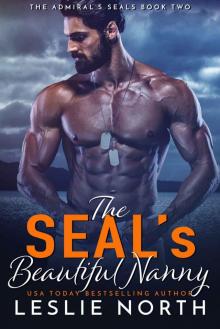 The SEAL’s Beautiful Nanny (The Admiral’s SEALs Book 2)
The SEAL’s Beautiful Nanny (The Admiral’s SEALs Book 2) SEAL Guardian (Brothers In Arms Book 3)
SEAL Guardian (Brothers In Arms Book 3)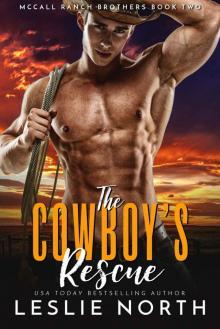 The Cowboy’s Rescue (McCall Ranch Brothers Book 2)
The Cowboy’s Rescue (McCall Ranch Brothers Book 2) The Billionaire's Pregnant Competition (The Billionaires Club Book 1)
The Billionaire's Pregnant Competition (The Billionaires Club Book 1) Billionaires & Babies: The Complete Series
Billionaires & Babies: The Complete Series The Rancher’s Inherited Family (McCall Ranch Brothers Book 1)
The Rancher’s Inherited Family (McCall Ranch Brothers Book 1) The Sheikh's Stubborn Lover (The Adjalane Sheikhs Series Book 2)
The Sheikh's Stubborn Lover (The Adjalane Sheikhs Series Book 2) The Billionaire’s Christmas Fiancée (Christmas with the Denton Billionaires Book 1)
The Billionaire’s Christmas Fiancée (Christmas with the Denton Billionaires Book 1) The Sheikh's Secret Princess
The Sheikh's Secret Princess The Billionaire's Ex-Wife (Jameson Brothers Book 1)
The Billionaire's Ex-Wife (Jameson Brothers Book 1)![Ride with the SEAL_Norse Security [Book One] Read online](http://i1.bookreadfree.com/i/03/20/ride_with_the_seal_norse_security_book_one_preview.jpg) Ride with the SEAL_Norse Security [Book One]
Ride with the SEAL_Norse Security [Book One] The Rancher’s Unexpected Baby: Brothers of Cooper Ranch Book Two
The Rancher’s Unexpected Baby: Brothers of Cooper Ranch Book Two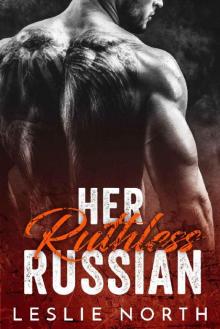 Her Ruthless Russian (Karev Brothers Book 1)
Her Ruthless Russian (Karev Brothers Book 1)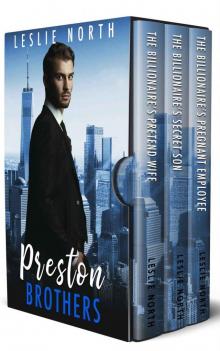 Preston Brothers The Complete Series
Preston Brothers The Complete Series The Sheikh's Furious Prisoner
The Sheikh's Furious Prisoner The Volkov Brothers Series: The Complete Series
The Volkov Brothers Series: The Complete Series A Sheikh for Christmas
A Sheikh for Christmas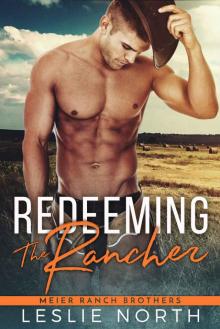 Redeeming the Rancher
Redeeming the Rancher The Sheikh's Pregnant Employee (Almasi Sheikhs Book 3)
The Sheikh's Pregnant Employee (Almasi Sheikhs Book 3) A Billionaire for Christmas
A Billionaire for Christmas The Sheikh's Determined Lover
The Sheikh's Determined Lover The Sheikh's Reluctant American (The Adjalane Sheikhs #3)
The Sheikh's Reluctant American (The Adjalane Sheikhs #3)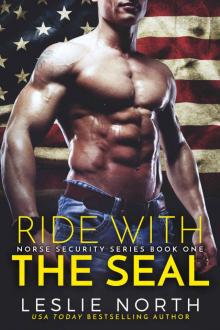 Ride with the SEAL
Ride with the SEAL Zahkim Sheikhs Series: The Complete Series
Zahkim Sheikhs Series: The Complete Series The Sheikh's Unforgettable Lover (The Sharqi Sheikhs Series Book 1)
The Sheikh's Unforgettable Lover (The Sharqi Sheikhs Series Book 1) Sheikha's Determined Police Officer (Botros Brothers Series Book 4)
Sheikha's Determined Police Officer (Botros Brothers Series Book 4) The Sheikh's American Bride (The Sharqi Sheikhs Series Book 2)
The Sheikh's American Bride (The Sharqi Sheikhs Series Book 2)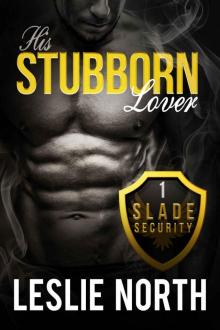 His Stubborn Lover
His Stubborn Lover The Sheikh's Defiant Girlfriend (The Botros Brothers Series)
The Sheikh's Defiant Girlfriend (The Botros Brothers Series) The Billionaire's Ex-Wife
The Billionaire's Ex-Wife The Russian's Secret Child (The Fedosov Family Series)
The Russian's Secret Child (The Fedosov Family Series) The Sheikh's Crown (Sheikh's Wedding Bet Series Book 2)
The Sheikh's Crown (Sheikh's Wedding Bet Series Book 2) The Sheikh's Unexpected Wife
The Sheikh's Unexpected Wife The Sheikh’s Secret Son (Sharjah Sheikhs Book 3)
The Sheikh’s Secret Son (Sharjah Sheikhs Book 3) Celi-Bet (Solomon Brothers #2)
Celi-Bet (Solomon Brothers #2) The Billionaire's Sexy Rival (Jameson Brothers Book 3)
The Billionaire's Sexy Rival (Jameson Brothers Book 3) The Sheikh's Christmas Baby (Shadid Sheikhs Series Book 3)
The Sheikh's Christmas Baby (Shadid Sheikhs Series Book 3) Royal Treatment
Royal Treatment The Sheik's Accidental Pregnancy
The Sheik's Accidental Pregnancy The Sheikh’s Contract Fiancée (Almasi Sheikhs Book 1)
The Sheikh’s Contract Fiancée (Almasi Sheikhs Book 1) Mafia Boss's Fearless Lover (The Karzhov Crime Family series Book 1)
Mafia Boss's Fearless Lover (The Karzhov Crime Family series Book 1) The Sheikh’s Surprise Heir: The Karawi Sheikhs Series Book One
The Sheikh’s Surprise Heir: The Karawi Sheikhs Series Book One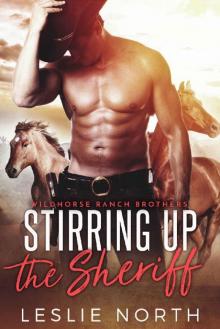 Stirring up the Sheriff (Wildhorse Ranch Brothers Book 3)
Stirring up the Sheriff (Wildhorse Ranch Brothers Book 3) Secret Billionaire's Stubborn Cowgirl (The Secret Billionaires, #1)
Secret Billionaire's Stubborn Cowgirl (The Secret Billionaires, #1)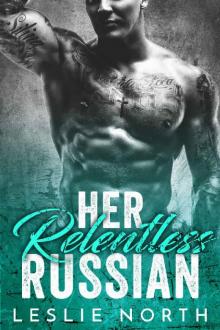 Her Relentless Russian (Karev Brothers Book 3)
Her Relentless Russian (Karev Brothers Book 3)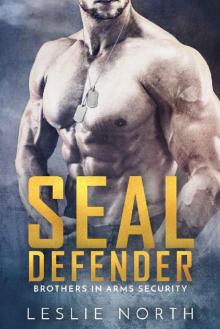 SEAL Defender (Brothers In Arms Book 1)
SEAL Defender (Brothers In Arms Book 1) Mafia Soldier's Irresistible Lover (The Karzhov Crime Family Series Book 3)
Mafia Soldier's Irresistible Lover (The Karzhov Crime Family Series Book 3) The Sheikh's Tempting Assistant
The Sheikh's Tempting Assistant The Sheik's Desires Boxset
The Sheik's Desires Boxset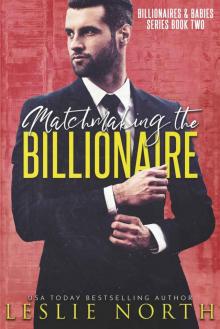 Matchmaking the Billionaire (Billionaires & Babies Book 2)
Matchmaking the Billionaire (Billionaires & Babies Book 2) Trusting the SEAL (Saving the SEALs Series Book 3)
Trusting the SEAL (Saving the SEALs Series Book 3) The Sheikh's Christmas Present (Shadid Sheikhs Series Book 2)
The Sheikh's Christmas Present (Shadid Sheikhs Series Book 2) The Sheikh’s Stubborn Assistant
The Sheikh’s Stubborn Assistant The Lord's Passionate Lover (The Royals of Monaco, #3)
The Lord's Passionate Lover (The Royals of Monaco, #3) The Sheikh’s Forced Bride (The Sharjah Sheikhs Series Book 1)
The Sheikh’s Forced Bride (The Sharjah Sheikhs Series Book 1) The Prince's Unwilling Lover (The Royals of Monaco Book 1)
The Prince's Unwilling Lover (The Royals of Monaco Book 1) The Sheikh’s Pregnant Fake Wife
The Sheikh’s Pregnant Fake Wife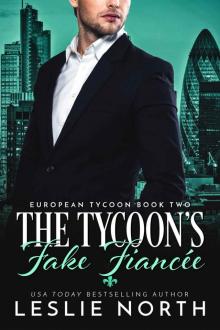 The Tycoon’s Fake Fiancée (European Tycoon Book 2)
The Tycoon’s Fake Fiancée (European Tycoon Book 2) Italian Billionaire’s Stubborn Lover
Italian Billionaire’s Stubborn Lover Greek Billionaire's Blackmailed Bride (The Rosso Family Series, #1)
Greek Billionaire's Blackmailed Bride (The Rosso Family Series, #1) The Sheikh's Christmas Maid
The Sheikh's Christmas Maid The Sheikh's Christmas Maid (Shadid Sheikhs Series Book 1)
The Sheikh's Christmas Maid (Shadid Sheikhs Series Book 1) Italian Billionaire’s Unexpected Lover
Italian Billionaire’s Unexpected Lover The Sheikh's Secret Bride
The Sheikh's Secret Bride The Sheikh's Unruly Lover (Almasi Sheikhs Book 2)
The Sheikh's Unruly Lover (Almasi Sheikhs Book 2) Secret Billionaire's Frosty Lover
Secret Billionaire's Frosty Lover SEAL Protector (Brothers In Arms Book 2)
SEAL Protector (Brothers In Arms Book 2) The Sheikh’s Pretend Fiancée
The Sheikh’s Pretend Fiancée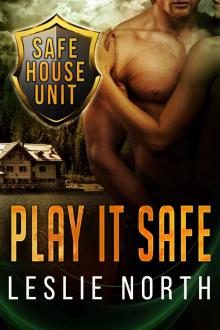 Play It Safe (The Safe House Series Book 2)
Play It Safe (The Safe House Series Book 2) Rose (Thorn Tattoo Studio Book 1)
Rose (Thorn Tattoo Studio Book 1) The Sheikh's Captive American
The Sheikh's Captive American Wired (The Solomon Brothers Series Book 1)
Wired (The Solomon Brothers Series Book 1) The Sheikh's Unexpected Wife (Zahkim Sheikhs Series Book 3)
The Sheikh's Unexpected Wife (Zahkim Sheikhs Series Book 3) The Romano Brothers Series
The Romano Brothers Series The Sheikh's Surprise Triplets (Azhar Sheikhs Book 3)
The Sheikh's Surprise Triplets (Azhar Sheikhs Book 3)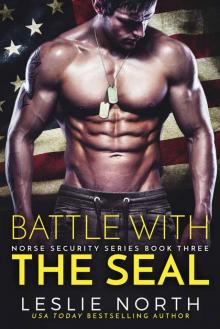 Battle with the SEAL
Battle with the SEAL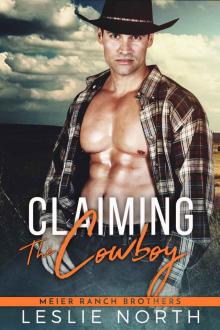 Claiming The Cowboy
Claiming The Cowboy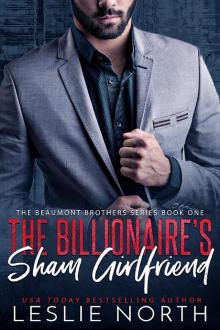 The Billionaire’s Sham Girlfriend: The Beaumont Brothers Book One
The Billionaire’s Sham Girlfriend: The Beaumont Brothers Book One The Sheikh's Unruly Lover
The Sheikh's Unruly Lover Shooting the SEAL (Saving the SEALs Series Book 1)
Shooting the SEAL (Saving the SEALs Series Book 1) The Sheikh's Demanding Fiancée (The Botros Brothers Series)
The Sheikh's Demanding Fiancée (The Botros Brothers Series) Owned by the Navy Seal
Owned by the Navy Seal The Billionaire’s Stubborn Lover (The Maxfield Brothers Series Book 3)
The Billionaire’s Stubborn Lover (The Maxfield Brothers Series Book 3) The Sheikh's Fiery Lover (The Tazeem Twins Series Book 2)
The Sheikh's Fiery Lover (The Tazeem Twins Series Book 2)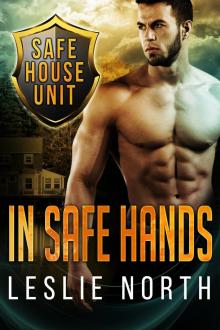 In Safe Hands (The Safe House Series Book 1)
In Safe Hands (The Safe House Series Book 1) The Sheikh's Pregnant Fling (Azhar Sheikhs Book 2)
The Sheikh's Pregnant Fling (Azhar Sheikhs Book 2) The Sheikh's Christmas Present
The Sheikh's Christmas Present Royal Service
Royal Service The Billionaire’s Tenacious Boss (The Maxfield Brothers Series Book 1)
The Billionaire’s Tenacious Boss (The Maxfield Brothers Series Book 1) Royal Order
Royal Order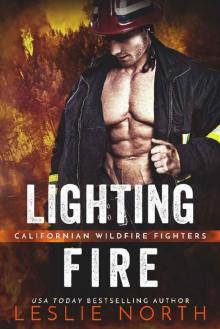 Lighting Fire
Lighting Fire Her Rogue Russian (Karev Brothers Book 2)
Her Rogue Russian (Karev Brothers Book 2) Fearless (The Solomon Brothers Series Book 3)
Fearless (The Solomon Brothers Series Book 3) The Sheikh's Diamond (Sheikh's Wedding Bet Series Book 1)
The Sheikh's Diamond (Sheikh's Wedding Bet Series Book 1) Mafia Hitman's Daring Lover
Mafia Hitman's Daring Lover Hacking the SEAL (Saving the SEALs Series Book 2)
Hacking the SEAL (Saving the SEALs Series Book 2) His Innocent Lover (Slade Security Team Series Book 3)
His Innocent Lover (Slade Security Team Series Book 3) The Prince's Pregnant Challenge (The Royals of Monaco, #2)
The Prince's Pregnant Challenge (The Royals of Monaco, #2) Undercover with the SEAL
Undercover with the SEAL Thorn (Thorn Tattoo Studio Book 2)
Thorn (Thorn Tattoo Studio Book 2) Mafia Enforcer's Sassy Lover (The Karzhov Crime Family Series Book 4)
Mafia Enforcer's Sassy Lover (The Karzhov Crime Family Series Book 4) The Sheikh's Pregnant Bride (The Jawhara Sheikhs Series Book 1)
The Sheikh's Pregnant Bride (The Jawhara Sheikhs Series Book 1)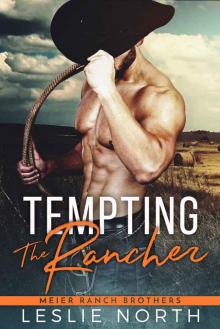 Tempting the Rancher
Tempting the Rancher Greek Billionaire's Uncontrollable Attraction (The Rosso Family Series Book 3)
Greek Billionaire's Uncontrollable Attraction (The Rosso Family Series Book 3) The Sheikh’s Island Fling
The Sheikh’s Island Fling![Battle with the SEAL_Norse Security [Book Three] Read online](http://i1.bookreadfree.com/i2/04/11/battle_with_the_seal_norse_security_book_three_preview.jpg) Battle with the SEAL_Norse Security [Book Three]
Battle with the SEAL_Norse Security [Book Three] The Sheikh’s Contract Fiancée
The Sheikh’s Contract Fiancée The Sheikh’s Tamed Bride
The Sheikh’s Tamed Bride The Sheikh’s Island Fling_Sheikh's Meddling Sisters_Book Two
The Sheikh’s Island Fling_Sheikh's Meddling Sisters_Book Two The Sheikh's Troublesome Bride
The Sheikh's Troublesome Bride A SEAL for Christmas
A SEAL for Christmas The Sheikh's Determined Lover (Zahkim Sheikhs Series Book 2)
The Sheikh's Determined Lover (Zahkim Sheikhs Series Book 2) The Sheikh’s Fake Fiancée (Azhar Sheikhs Book 1)
The Sheikh’s Fake Fiancée (Azhar Sheikhs Book 1)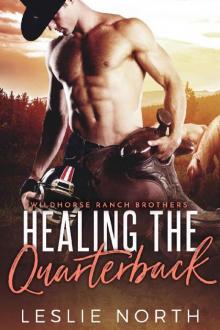 Healing the Quarterback (Wildhorse Ranch Brothers Book 2)
Healing the Quarterback (Wildhorse Ranch Brothers Book 2) The Sheikh's Resisting Lover (The Tazeem Twins Series Book 3)
The Sheikh's Resisting Lover (The Tazeem Twins Series Book 3) Greek Billionaire's Forbidden Lover (The Rosso Family Series Book 2)
Greek Billionaire's Forbidden Lover (The Rosso Family Series Book 2)![Undercover with the SEAL_Norse Security [Book Two] Read online](http://i1.bookreadfree.com/i2/04/11/undercover_with_the_seal_norse_security_book_two_preview.jpg) Undercover with the SEAL_Norse Security [Book Two]
Undercover with the SEAL_Norse Security [Book Two] Rescued by the Navy Seal
Rescued by the Navy Seal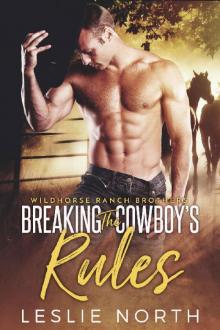 Breaking the Cowboy's Rules (Wildhorse Ranch Brothers Book 1)
Breaking the Cowboy's Rules (Wildhorse Ranch Brothers Book 1) CEO's Pregnant Lover
CEO's Pregnant Lover Royals of Danovar: The Complete Series
Royals of Danovar: The Complete Series The Sheikha's Forbidden Lover (The Tazeem Twins Series Book 5)
The Sheikha's Forbidden Lover (The Tazeem Twins Series Book 5) The Sheikh's Kidnapped Bride (The Sharqi Sheikhs Series Book 3)
The Sheikh's Kidnapped Bride (The Sharqi Sheikhs Series Book 3)